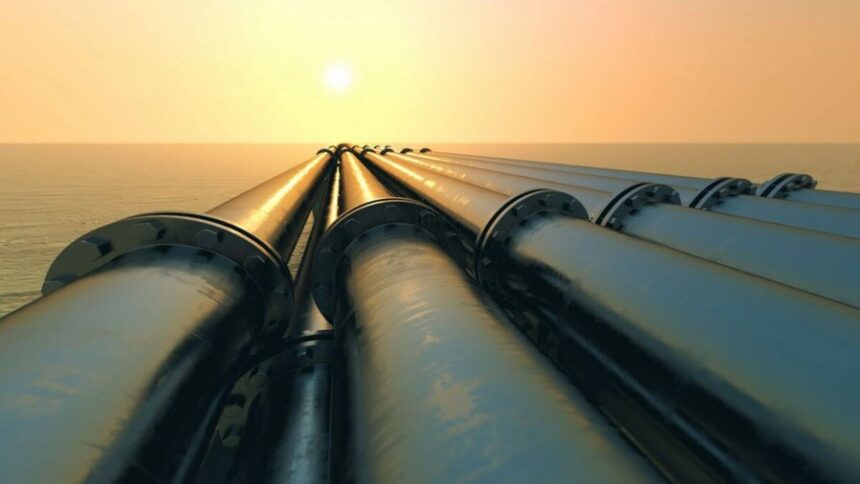In a significant realignment of regional trade and energy logistics, Iraq is emerging as a central hub in the Middle East’s evolving infrastructure network. With new pipeline agreements, port megaprojects, and revived rail connections, Baghdad is positioning itself at the crossroads of Gulf, Turkish, and European economic corridors—effectively bypassing the historically volatile Strait of Hormuz.
Speaking earlier this month, Turkish Energy Minister Alparslan Bayraktar confirmed that Ankara and Baghdad are preparing to sign a broad energy framework agreement within months. The deal is set to include a new pipeline capable of transporting 1.5 million barrels of oil per day from Basra to Turkey’s Ceyhan port on the Mediterranean, a move that would significantly boost Iraq’s export capacity. The agreement also covers expanded trade in natural gas and electricity.
This marks the latest step in Iraq’s bid to revamp its infrastructure and reintegrate into regional supply chains. The Ministry of Transport recently announced that Phase I of the $17 billion Grand Faw Port project—located on the Persian Gulf—will be completed by the end of 2025. The port forms the southern anchor of a proposed trade corridor stretching north to Turkey’s Mersin port, effectively linking the Gulf to Europe by rail and road.
Baghdad is also working to revive the long-idle oil pipeline from the Kurdistan Region to Ceyhan, signaling a thaw in relations between Erbil and the central government amid shared economic interests.
Iraq’s energy diversification has accelerated in recent months. In September, Baghdad resumed electricity imports from Turkey following the expiration of a U.S. waiver that had allowed Iraq to buy electricity from Iran. The deal with Turkey will see electricity volumes double to 600 megawatts by 2025—twice the amount Iran had been supplying.
Bypassing Hormuz: A Regional Shift
Iraq’s transformation is part of a broader trend across the Gulf and Eurasia, where countries are racing to reduce dependency on the Strait of Hormuz. The chokepoint, which sees around 20% of global oil flows, has become a liability amid Iran’s repeated threats to disrupt transit.
Saudi Arabia has launched a tender to construct a railway linking the Persian Gulf to the Red Sea, while Kuwait signed an agreement on April 7 with Turkish firm Proyapi to design part of the 2,177-kilometer Gulf Railway, which will eventually connect Kuwait to Oman through Gulf Cooperation Council states. The route is expected to be completed by 2030 and supports Riyadh’s vision of a Gulf–Red Sea corridor.
Meanwhile, Turkey is bolstering its role as an energy and logistics hub. It currently operates both the TANAP and TurkStream pipelines, supplying Europe with Azerbaijani and Russian gas. It has also recently begun receiving Turkmen gas through a swap agreement via Iran. Since 2017, the Baku–Tbilisi–Kars railway has boosted east–west trade, with Georgia completing upgrades in 2024 that increased the line’s capacity fivefold.
Iran Left Behind
As regional powers pursue new corridors, Iran finds itself increasingly sidelined. Despite its strategic location and close ties with China, Tehran has failed to activate key infrastructure projects. The much-hyped Jask oil terminal briefly handled 170,000 barrels per day last October but remains underutilized. The Chabahar port, touted as a gateway for Indian trade, accounts for less than 2% of Iran’s total foreign trade. In contrast, Azerbaijan moved 33 million tons of goods last year, compared to Iran’s 22 million tons.
Tehran’s opposition to alternative corridors such as the Turkish-backed Zangezur Corridor, which would link Azerbaijan to Turkey via Armenia, has further isolated the country. While Iran clings to outdated transit models, the Gulf states, Turkey, and Central Asian nations are actively redrawing the region’s trade routes.
Even China, Iran’s most powerful partner, has prioritized Central Asian and Caucasus routes to connect with Europe, with freight traffic along the China–Turkey corridor increasing fivefold in recent years.
A Strategic Turnaround for Baghdad
For Iraq, this geopolitical realignment offers a historic opportunity to reclaim its relevance. Once hamstrung by war, political instability, and overreliance on Iran, Iraq is now reasserting itself as a sovereign trade and energy actor. By linking the Persian Gulf to the Mediterranean and integrating with Turkish and Gulf infrastructure, Baghdad is transforming into a regional bridge—not a battleground.
With the Grand Faw Port nearing completion, new pipelines in the works, and rail projects moving forward, Iraq is poised to become a critical node in a fast-emerging Eurasian trade network—one that flows around, not through, the Strait of Hormuz.







